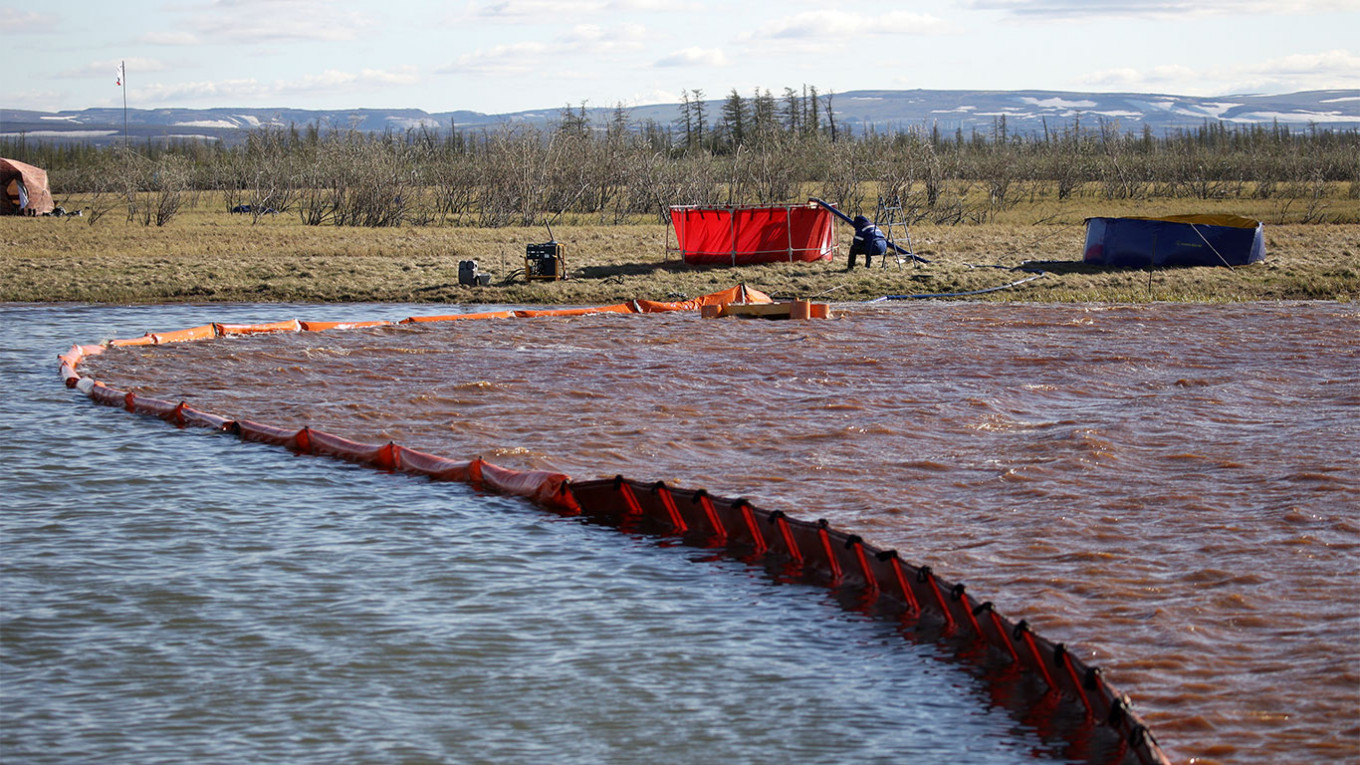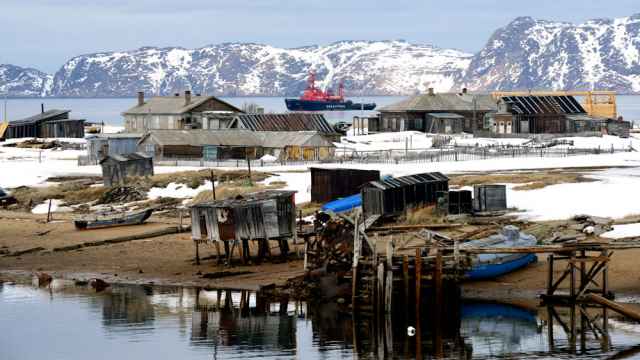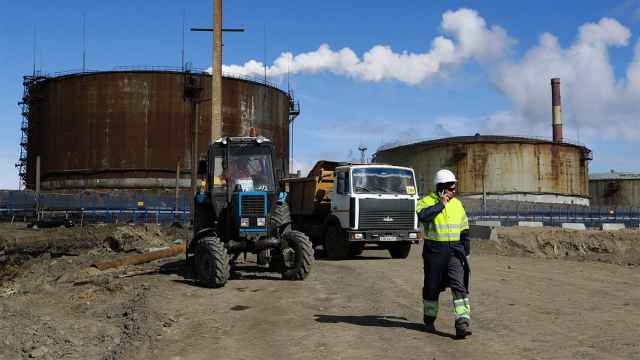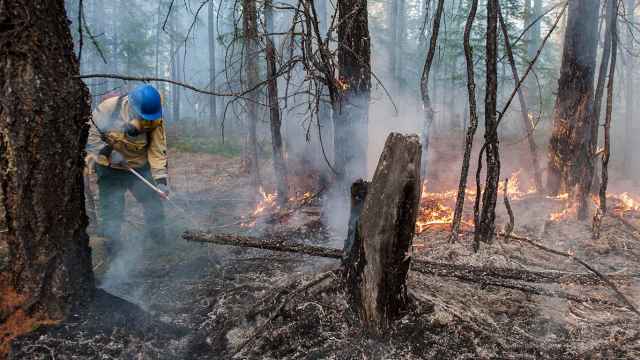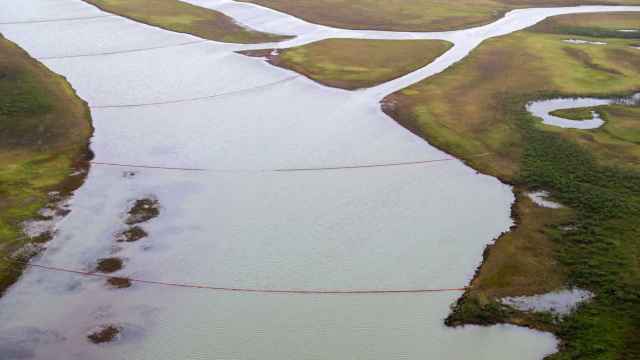Two years after an oil spill at a facility owned by Russian mining giant Nornickel sparked one of the worst-ever environmental disasters in the Arctic, the company says the environment in the area of the spill is in satisfactory condition.
Investigations by a visiting environmentalist indicate otherwise.
“Two years have passed, there have been some cleanup operations, but these dirty red substances are still in the ground and nothing has changed,” says Vasily Ryabinin.
He stands by a stream colored red by the diesel fuel that poured into the vulnerable Arctic ecosystem from a collapsed oil tank reservoir in 2020.
More than 21,000 tons of fuel spilled into the tundra, streams and lakes when the tank tilted and cracked following what is believed to have been negligent maintenance by Nornickel and its subsidiary Norilsko-Taimyrsky Energy Company.
“Time flies, two years have passed, nothing has changed — red water is still running,” Ryabinin says in a video from the area.
The video was recorded just days after Nornickel announced that the environmental situation in the area is “satisfactory.”
According to the company, a comprehensive study by more than 70 researchers from 10 research institutes concluded that cleanup in the area has been successful and that the local ecosystem is getting restored.
The study included a wide range of tests of local waters, soil, botanics, fish and wildlife, Nornickel said.
According to the research expedition's leader Fyodor Romanenko, the initiative aimed to gather “accurate, comprehensive and reliable research information based on a complex study of the current state of pollution in the waters of the Pyasina River basin.”
The river was among the waterways worst affected by the spill.
“The results of the studies allow the researchers to define the state of the ecosystem of the Norilsk industrial hub and the territory of the Taimyr Peninsula as satisfactory,” Nornickel said.
However, environmentalist and activist Vasily Ryabinin disagrees.
“Dear researchers, if you really want to check the true condition of the ecosystem, you can simply call me and I will show you where to check,” Ryabinin says as he stands on the shore of the red-colored stream.
Or perhaps this is simply “useful soil,” the activist added in an ironic comment aimed at the mining and metallurgy company.
Nornickel is known worldwide for its reckless care of nature around its industrial facilities. The vulnerable Arctic environment surrounding its plants in the Taimyr and the Kola Peninsulas have been subjected to serious degradation over the decades.
The spill of diesel fuel added significant trouble to the area’s already strained ecosystem. Several hundred people were involved in the cleanup operation in summer 2020.
A large number of special containers were flown into the area and placed along the worst-affected rivers and streams. Spilled oil was pumped into the containers. In addition, the company started building storage facilities for up to 100,000 tons of polluted soil. However, flooding, bad weather and the harsh climate complicated operations.
Information about the situation was firmly controlled by the authorities and Nornickel, and hardly any independent environmental experts were granted permission to enter the area.
A historic fine followed. In early 2021, Nornickel was ordered to pay a record sum of 146 billion rubles (€1.66 billion) for environmental damage.
This article has been adapted from its original version published by The Barents Observer.
A Message from The Moscow Times:
Dear readers,
We are facing unprecedented challenges. Russia's Prosecutor General's Office has designated The Moscow Times as an "undesirable" organization, criminalizing our work and putting our staff at risk of prosecution. This follows our earlier unjust labeling as a "foreign agent."
These actions are direct attempts to silence independent journalism in Russia. The authorities claim our work "discredits the decisions of the Russian leadership." We see things differently: we strive to provide accurate, unbiased reporting on Russia.
We, the journalists of The Moscow Times, refuse to be silenced. But to continue our work, we need your help.
Your support, no matter how small, makes a world of difference. If you can, please support us monthly starting from just $2. It's quick to set up, and every contribution makes a significant impact.
By supporting The Moscow Times, you're defending open, independent journalism in the face of repression. Thank you for standing with us.
Remind me later.


